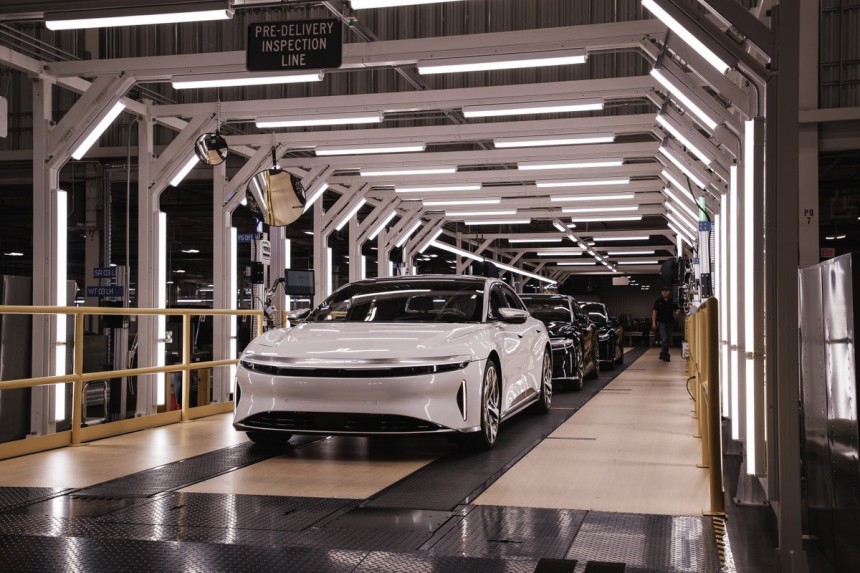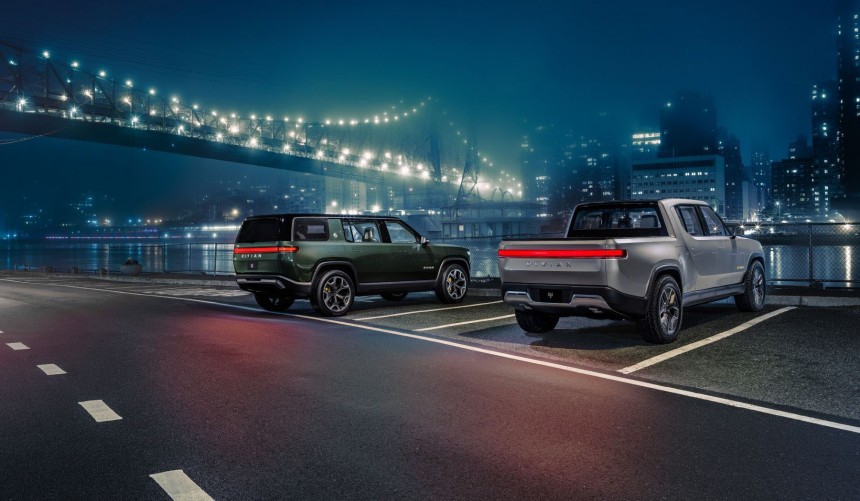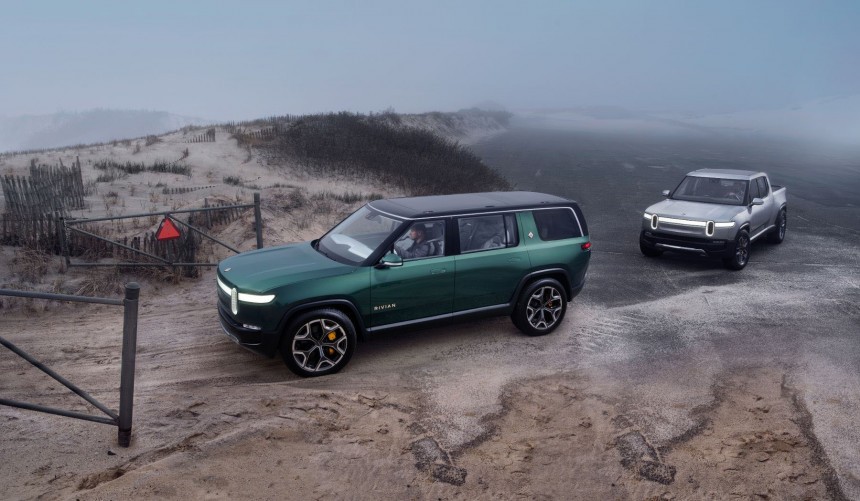There’s been a long-held belief that Americans just aren’t ready for EV vehicles quite yet, but the narrative has been flipped on its head by the numbers.
Tyson Jominy, the Vice President of Data and Analytics for J.D. Power, says the actual sales figures have forced analysts to recalibrate their predictions.
“We’ve had to kind of blow those up because the rate of adoption is going much quicker,” Jominy said recently.
While in 2020, EVs accounted for approximately 2 percent of all car sales, but over the course of the summer of 2021, that number has reached nearly 5 percent of light-duty vehicles like SUVs and sedans and now accounts for more than 20 percent of all passenger vehicles sales.
Some experts say that failing a boost from federal and state policies, adoption rates of EVs could slow down. While much of the uptick comes from a proliferation of vehicle models across manufacturers, it’s also driven by consumer awareness.
“You see automakers moving to start building EV-only assembly plants and announcing these new battery manufacturing facilities,” says Ryan Gallentine of Advanced Energy Economy. “To me, that says they’re betting their business on EVs.”
The announcement that Ford Motor Co. and SK Innovation plan to spend $11.4 billion on new production facilities in Tennessee and Kentucky to construct EVs and batteries, is one bellwether of the trend. Add to that the direction taken by General Motors Co. and Stellantis, who have said that they anticipate 40 to 50 percent of car sales will be electric by 2030, and you have a forecast for a coming tidal wave of EV sales.
At this moment, SUV sales account for nearly 60 percent of total vehicle sales in the U.S., and that bodes well for the makers who are poised to service that demand. Smaller ‘crossover’ vehicles such as the Volkswagen ID.4 and Hyundai Ioniq 5, midsize crossovers like the Toyota bZ4X are on the way, and the intention by Ford for 2023 to offer larger SUVs in EV versions signal their intent to be major players. Full-sized pickup trucks include Ford’s F-150 Lightning - which now has some 130,000 reservations on the books - and the coming of electric versions of the Chevy Silverado, GMC Sierra, and Dodge Ram all bode well for fast adoption of EV vehicles in all classes.
It’s now at the stage in development where consumers will be able to find an EV in nearly any market segment. As soon as the end of 2022, analysts say some 40 more EV models are expected to be available in the U.S. market.
Jominy says consumer’s past choices will also play a part in which EV they choose going forward.
“They’re about 48 percent loyal to their brand,” Jominy of J.D. Power said. “So if there’s a Hyundai or a Tesla in the segment you’re considering but you don’t currently own that, you’re not very likely to consider it.”
The proposed $3.5 trillion reconciliation package and the $1.2 trillion bipartisan infrastructure deals could also amp up the adoption of EVs. The reconciliation bill includes a provision to offer a $7,500 EV tax credit - and an additional $4,500 incentive would be on tap for union-made EVs assembled in the U.S.
“The bottom line is the investment dollars are now all going toward EVs, which means that the tidal wave is coming,” says Jominy.
Rivian, one of the best-positioned and funded EV makers in the U.S., actually rolled their first customer vehicles off the line earlier this week. Rivian has raised $10.5 billion.
Midway through last month, Lucid Motors announced the official EPA ratings for the range of its upcoming EV, the Air, and that startling number generated quite a buzz indeed. While few are ready to say the Air will outstrip the Tesla in sales or performance, the question is on the table. Now it remains to be seen if the Air and the Rivian can be produced in sufficient numbers to satisfying a nascent and growing market demand.
“We’ve had to kind of blow those up because the rate of adoption is going much quicker,” Jominy said recently.
While in 2020, EVs accounted for approximately 2 percent of all car sales, but over the course of the summer of 2021, that number has reached nearly 5 percent of light-duty vehicles like SUVs and sedans and now accounts for more than 20 percent of all passenger vehicles sales.
“You see automakers moving to start building EV-only assembly plants and announcing these new battery manufacturing facilities,” says Ryan Gallentine of Advanced Energy Economy. “To me, that says they’re betting their business on EVs.”
The announcement that Ford Motor Co. and SK Innovation plan to spend $11.4 billion on new production facilities in Tennessee and Kentucky to construct EVs and batteries, is one bellwether of the trend. Add to that the direction taken by General Motors Co. and Stellantis, who have said that they anticipate 40 to 50 percent of car sales will be electric by 2030, and you have a forecast for a coming tidal wave of EV sales.
At this moment, SUV sales account for nearly 60 percent of total vehicle sales in the U.S., and that bodes well for the makers who are poised to service that demand. Smaller ‘crossover’ vehicles such as the Volkswagen ID.4 and Hyundai Ioniq 5, midsize crossovers like the Toyota bZ4X are on the way, and the intention by Ford for 2023 to offer larger SUVs in EV versions signal their intent to be major players. Full-sized pickup trucks include Ford’s F-150 Lightning - which now has some 130,000 reservations on the books - and the coming of electric versions of the Chevy Silverado, GMC Sierra, and Dodge Ram all bode well for fast adoption of EV vehicles in all classes.
Jominy says consumer’s past choices will also play a part in which EV they choose going forward.
“They’re about 48 percent loyal to their brand,” Jominy of J.D. Power said. “So if there’s a Hyundai or a Tesla in the segment you’re considering but you don’t currently own that, you’re not very likely to consider it.”
The proposed $3.5 trillion reconciliation package and the $1.2 trillion bipartisan infrastructure deals could also amp up the adoption of EVs. The reconciliation bill includes a provision to offer a $7,500 EV tax credit - and an additional $4,500 incentive would be on tap for union-made EVs assembled in the U.S.
“The bottom line is the investment dollars are now all going toward EVs, which means that the tidal wave is coming,” says Jominy.
Midway through last month, Lucid Motors announced the official EPA ratings for the range of its upcoming EV, the Air, and that startling number generated quite a buzz indeed. While few are ready to say the Air will outstrip the Tesla in sales or performance, the question is on the table. Now it remains to be seen if the Air and the Rivian can be produced in sufficient numbers to satisfying a nascent and growing market demand.







































